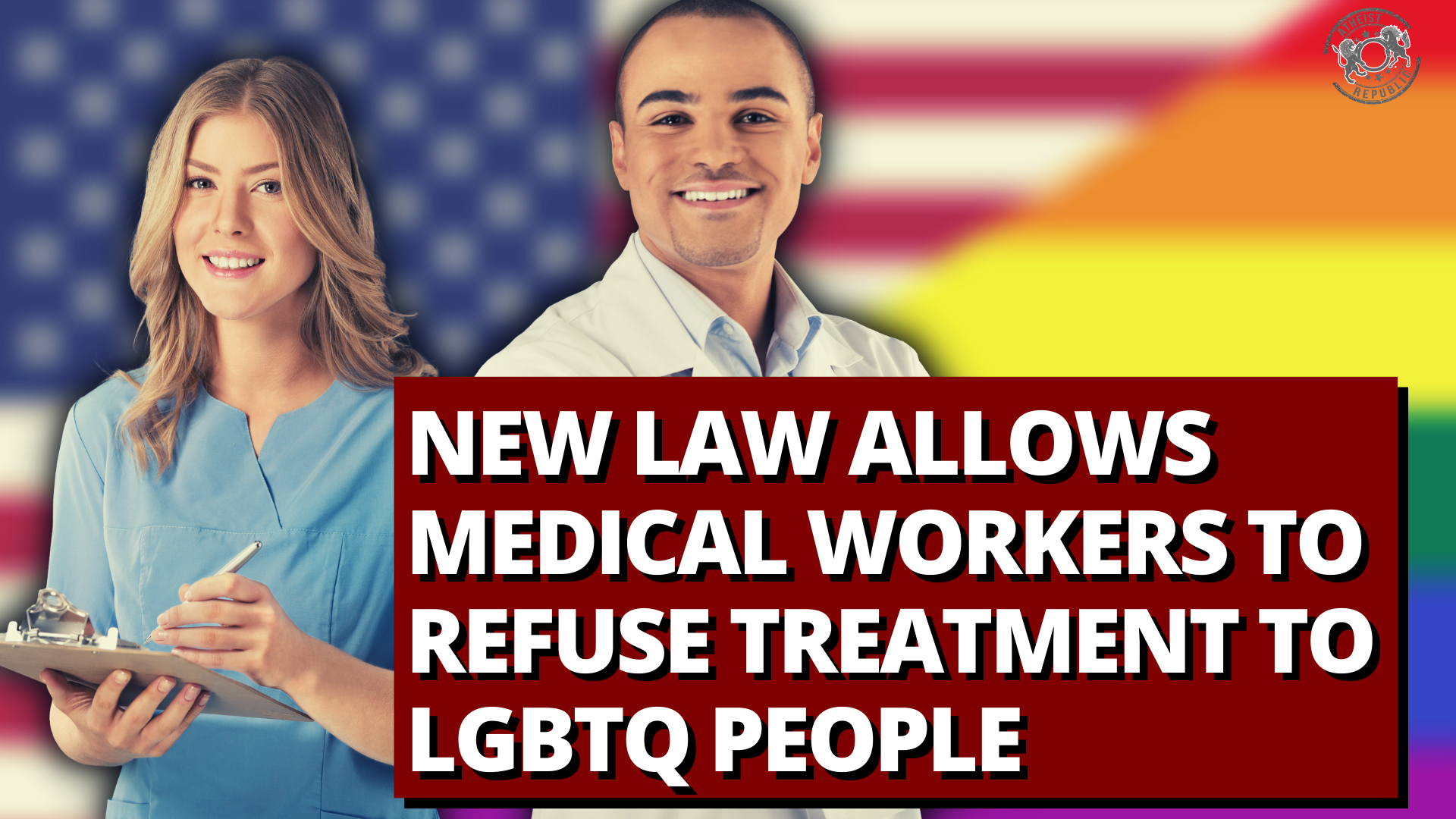
On March 26th, Arkansas’s Governor, Asa Hutchinson (R), enacted Senate Bill 289 (Medical Ethics and Diversity Act,” into law.This legislation will allow doctors and medical professionals to refuse treatment that conflicts with their religious or moral beliefs. Opponents say this legislation will give providers an easy path to deny LGBTQ patients the medical treatment they need.
This legislation could lead to EMTs, doctors, or nurses denying LGBTQ people many life-saving services. When announcing his decision, Hutchinson discounted concerns of discrimination against LGBTQ patients.
This is immoral. My job is to provide care without judgment, to reduce risk of disease, to move you towards better health- not to deny treatment based upon any personal religious, or “moral” objections. Shame on every legislator who voted for this & @AsaHutchinson for signing it. https://t.co/TgzCJ1Vt4m
— Celeste Williams (@CelesteforAR) March 27, 2021
He stated, “I weighed this bill very carefully, and it should be noted that I opposed the bill in the 2017 legislative session. The bill was changed to ensure that the exercise of the right of conscience is limited to ‘conscience-based objections to a particular health care service.’”
“I support this right of conscience so long as emergency care is exempted and conscientious objection cannot be used to deny general health service to any class of people,” Hutchinson added.
Mark Wingfield writes,
"Senate Bill 289, also known as the Medical Ethics and Diversity Act, is one of several legislative efforts in Arkansas that critics say take direct aim at citizens who identify in the LGBTQ community." /1 https://t.co/Ny4Il6mlZK
— William D Lindsey (@wdlindsy) March 29, 2021
The governor also believes that allowing medical providers the right to object to treating certain patients is okay because of “the federal laws that prohibit discrimination.” But, without the Equality Act, LGBTQ people are not automatically included.
The bill as written provides no limits to the medical professional’s “right” to “conscientious objection” in any form. A doctor might claim to “conscientiously object” to treating a gay or trans person, and the Medical Ethics and Diversity Actdoes not expressly rule out such use. The Act does not specifically reject discrimination as a reason to refuse care to a patient.
The Human Rights Campaign (HRC), American Civil Liberties Union (ACLU), and others who oppose the law express concern that a host of services will be denied to LGBTQ patients. The state Chamber of Commerce also opposed the bill citing that it sends the wrong message about the state of Arkansas.
Some critical medical care that could be denied includes hormone treatments for transgender patients, patients requiring in-patient treatment for infection, or even grief counseling for gay couples. The legislature might also permit professionals to refuse to fill prescriptions for birth control or override end-of-life patient directives.
Holly Dickson, ACLU of Arkansas Executive Director, stated, “There is no sugarcoating this: this bill is another brazen attempt to make it easier to discriminate against people and deny Arkansans the health care services they need.”
Other Republican-led measures targeting transgender people are rising this year. Arkansas’s governor also signed a law prohibiting transgender women and girls from playing on sports teams according to their gender identity. A proposal to ban gender-confirming surgery and treatments for minors is scheduled for a final vote.
The Human Rights Campaign is airing a televised ad in Arkansas during the NCAA Tournament denouncing discriminatory legislation, such as prohibiting transgender athletes who identify as women from sports.
The 30-second televised ad states, “Trans kids are kids. They don’t deserve this cruelty.”
The Alliance Defending Freedom legal counsel, Stephanie Nichols, said in a statement, “Driving out doctors, nurses, and other medical providers because of their faith means fewer healthcare options for patients at a time when our nation’s healthcare system is overstretched and experiencing a dire shortage of providers.”
